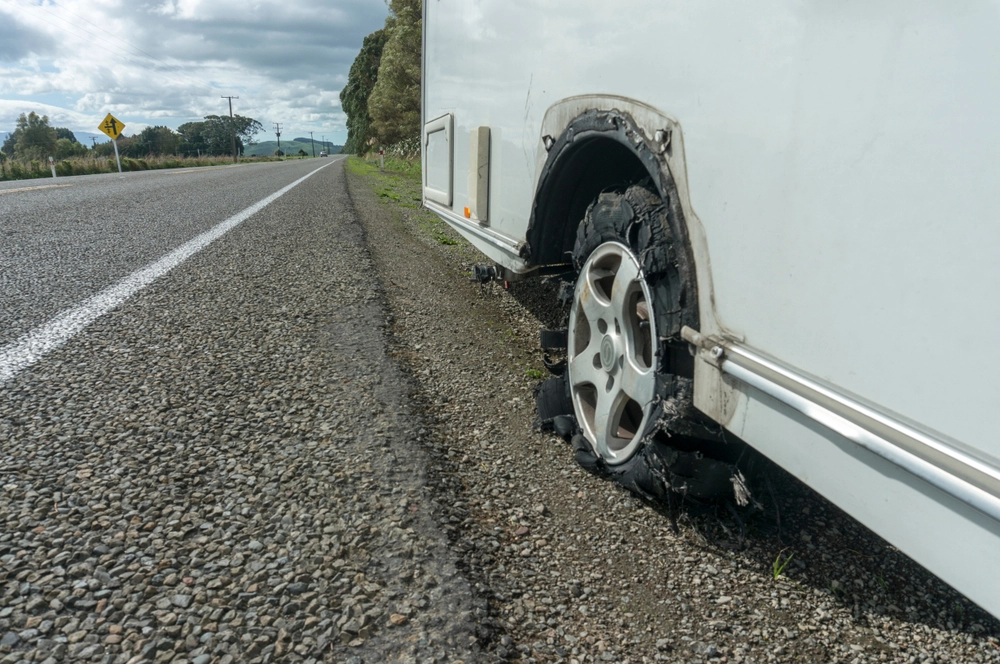There is never a good time for your RV tire to blowout, especially when you’re enjoying the open road ahead of you and looking forward to your next destination. You can’t always predict when an RV tire is going to blow, but you can do your part to make sure your tires have the best chance of getting you where you need to go without issue.
Here are a few tips to help you stay safely away from blown out RV tires:
- Checking that your tire pressure is appropriate for the current season
- Making sure you get new tires put on before your old ones push their limits
- Keeping your RV’s weight in check
- Driving responsibly to help your tires last their longest
Your RV may be a few trips away from needing new tires, but it’s never too early to take care of the tires currently on your rig and give yourself the best shot possible to avoid a tire blowout.
What Is A Tire Blowout?
A tire blowout occurs when the pressure inside of your tires is too much for the tire’s sidewall to handle. The sidewalls of tires are not as thick as the tread of the tire and can’t stand as much pressure. You should always check what your RV tire pressure is at. Tires that aren’t inflated enough are actually at a higher risk of blowouts than tires that are overinflated.
Maintain Proper Tire Pressure
To determine what tire pressure is best for your RV, you should first check your RV’s manual or look around your RV for a plate with proper inflation level information. Cooler weather usually warrants keeping your tires at a higher PSI (pounds per square inch), whereas in hot weather it might be suggested to keep your RV’s tire pressure slightly lower, especially since tires heat us as they drive down the road.

